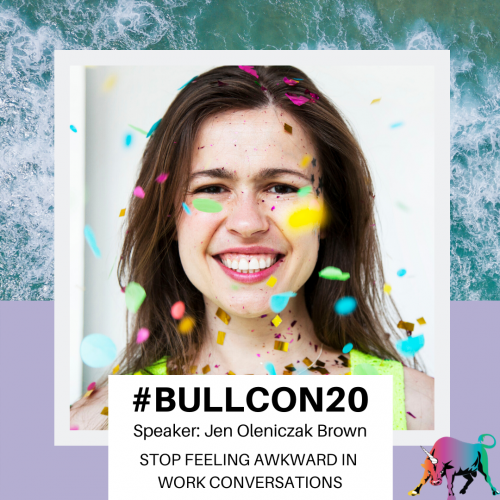Here’s an answer to a reader question about switching industries and the idea of “stepping back.”
But I think you’ll find some ideas applicable to anyone trying to grab that dream job that she’s not exactly qualified for.
I also discuss why it’s good to have an inner Lil Wayne.
My question is about stepping back to get ahead. Currently, I work in as an assistant director for a unit in a major health/hospital system. However, my desire is to course correct back into the international development field (my grad school degree is in urban planning with a international development focus).
I am not sure if the skill set I have acquired since grad school will translate into a similar position in the development field (many times experience requirements in the development field desire someone who has worked specifically in that field for an extended period of time [example: 5 years working on USAID related projects]) . I am wondering would it make sense to work as a special or exec assistant in that field to get into the field and make moves from there.
Hi there! If you don’t want to work in the healthcare field, then changing course isn’t stepping back. I mean, it’s stepping back in the sense you would step back from a fire. Or from marrying the wrong person. It’s kind of the only path to where you want to go, right? So there’s no point in thinking about stepping “back.”
As to whether your skill set will translate — sure, a lot of employers are really close-minded about what you might call cross-disciplinary experience. And if you don’t have a personal connection to get your resume through, a resume that lacks the right keywords just won’t ever make it past the first round.
When you submit a resume cold, there’s often a low-level person doing the first read, and that low-level person may not even understand the position that’s being filled — it could literally be an intern who was told to throw out anyone who doesn’t have a four-year degree, five years’ experience in international development, and a correctly-spelled cover letter. Or, it might not be an intern — it might be an algorithm, coldly filing you away in a slush pile of resumes that failed to say “5 years” and “USAID.”
So, try to game the keyword system as much as you can without lying. Maybe you worked for an organization that is “a European organization modeled on USAID.” There. Keywords!
(See also: Bullish: Basing Your Career On A Resume Is Like Competing In A Brothel Lineup.)
But more importantly, you want to make personal connections that will get your resume past that intern.
How do you make these personal connections? You could try volunteering. Could you use vacation time from your job to spend two weeks on an international development project somewhere where you could do good while meeting people who could help you? You could also become a LinkedIn guru, or develop or write for a blog about some aspect of international development (this gives you an excuse to email and schedule phone calls with important people under the guise of interviewing them). Or maybe international development bigwigs really all like rock climbing or something. Make it your mission to find out.
Also: I’m sure you’ve read the statistic that women only apply for jobs if they have 100% of the qualifications, whereas men will apply if they have even the vaguest shadow of maybe being, say, 25% qualified.
From Harvard Business Review’s Confidence is a Numbers Game:
Here’s where I think women get it wrong: we are perpetually rounding down, where, by all rules of mathematics, we should be rounding up. And that slight miscalculation has huge repercussions in our professional lives. In school, if you graduate with a 3.76 grade point average, you round up and call it a 3.8.
…And yet, women aren’t using this mathematical convenience correctly, or to their benefit. Instead, we inevitably place outsized value on the downside of our calculations, on the outstanding risks, on the unknown. Similar to Rommety thinking she wasn’t qualified for the job, women round down: if we’re 60% qualified for a job, we give ourselves a 0 and don’t apply. Why round down rather than up when we’ve long been taught that a 0.5 gets rounded up to 1? And even when we feel 70%, 80% or 90% qualified for a job, we’d never be so bold as to round ourselves up to 100%.
I mean, men are usually rewarded for their outrageous overshooting. How many men who you would never, ever consider dating have hit on you, and when you’re like, “Whoa, you are older than my dad” or “You smell like feet,” they say, “Well, I had to try”? Some of them are really not even embarrassed. There was a long shot and they took it! Good job, buddy! They feel good about that.
So, keep that in mind. Imagine your shadow arrogant-man-self. (Prince has his female alter-ego, Camille. It might be helpful to imagine that you have an inner Commander Riker or Lil Wayne or something.) So, absolutely assume and insist that your health industry experience is relevant, and let rejection roll right off til someone sees it your way. Lil Wayne doesn’t give a shit.
Also, there’s this, from Forbes’ 3 Reasons Why The Most Qualified Candidate Doesn’t Get The Job:
But there is one question where I also hear the same response: Would you hire the most qualified but lukewarm candidate or the lesser but still qualified and enthusiastic candidate? Hands down, employers pick the enthusiastic though less qualified candidate. Desire matters. We want to work with energetic, positive people who want to work with us.
You asked whether it would be productive to work as a special or exec assistant. I wonder! Is this a way to break in, or will you get pigeonholed into assistanting and be unable to make moves? This very specific question is an excellent excuse to send emails to strangers in international development. It’s an especially good question because whoever you contact can answer it in one sentence. Keep your email to one paragraph (ideally have a link in your signature so the recipient can learn more about you if they want), and really keep it to just the one question.
Whoever writes you back, thank them, of course, but also thank them again a year from now or whenever it is that you get that awesome international development job. (“Your advice back in 2013 was very helpful in putting me on the right track….”)
As a teenager, I read some kind of book about using principles of psychology to get ahead (if I had access to my childhood bedroom right now, I’d find the title of this book and link to it, but alas, I decided against calling my mother and asking her to read aloud all the titles of my old books), and one idea in particular really stuck with me: People don’t come to like you more when you do something nice for them. Rather, they come to like you more when they have done something nice for you.
Basically, the brain will twist facts and interpretations to avoid inconsistency. So if someone ends up doing something nice for you (maybe it wasn’t that big a deal, or they kind of got pushed into it), their brain is like, “Why would we do that if we didn’t really want to help or be liked by that person? We must really like that person!” So if someone gives you some quick advice and you make a big deal a year later about how amazing their advice was, somewhere deep in their brain, maybe they’ll conclude, “Oh, this must have been someone really special for me to take the time to give such amazing advice.”
(By that logic, I like you a lot! Yay!)
Anyway, keeping in touch via email with friendly, high-up strangers is never going to be a bad thing for your career, you know?
Also, this article at least suggests that being an assistant is a fine idea: “The international development sector is a hard one to break into. Disheartening though it may be, it could work to your advantage to take on an entry-level administrative position. At VSO people who come in at this level and perform well often move into other better paid and more senior positions. I am sure this is quite similar to what happens in other organisations too.”
The article also suggests that being a medic would be the easiest way to break in, so, while you’re not going to be personally performing surgery in the field, I’ll bet you could pitch your background in health care as precisely what some organization needs.
You might want to check out some related questions I’ve answered over on TheGrindstone, as well as Bullish: What’s Your Business Model? and Bullish: How to Run Your Career Like a Business.
Good luck! And don’t feel bad about taking a “step back.” It isn’t! It’s the only path to where you want to go (also known as “forward”!)









